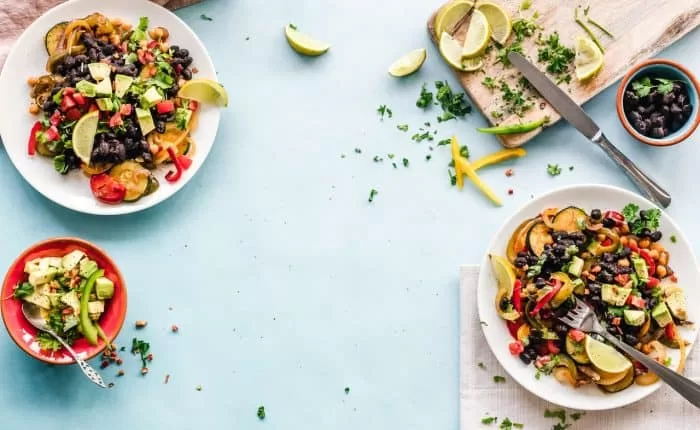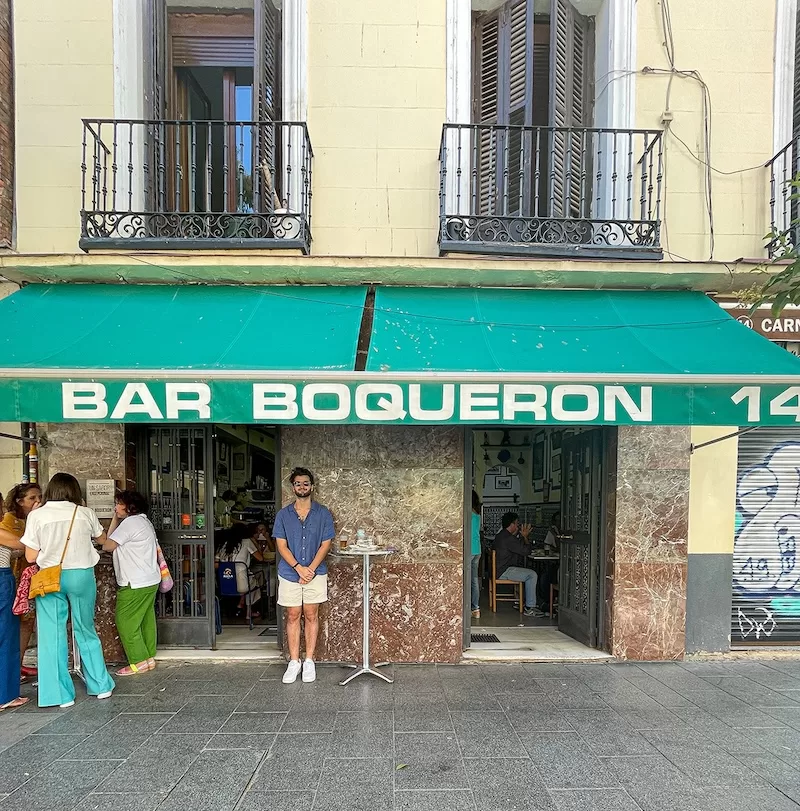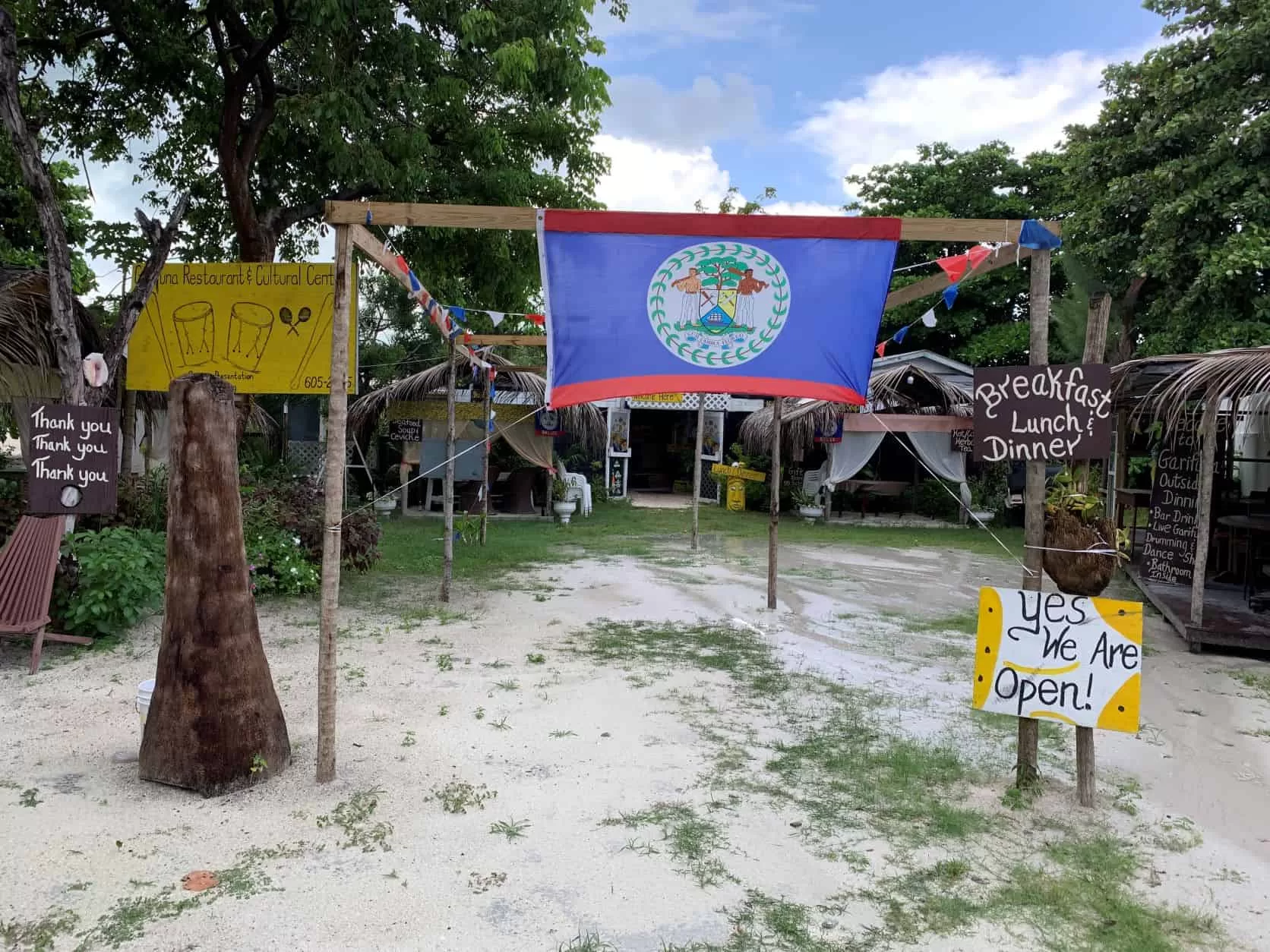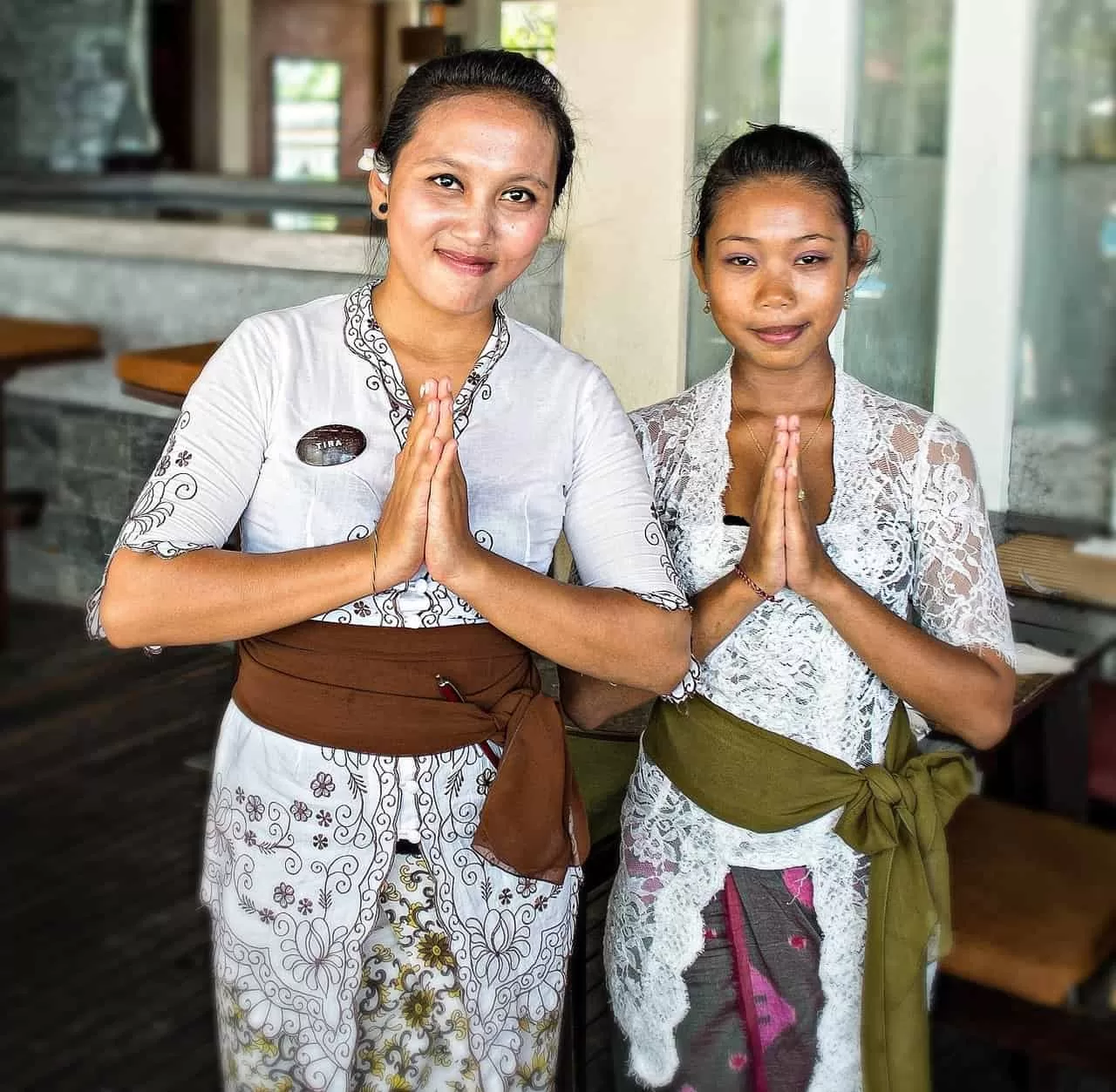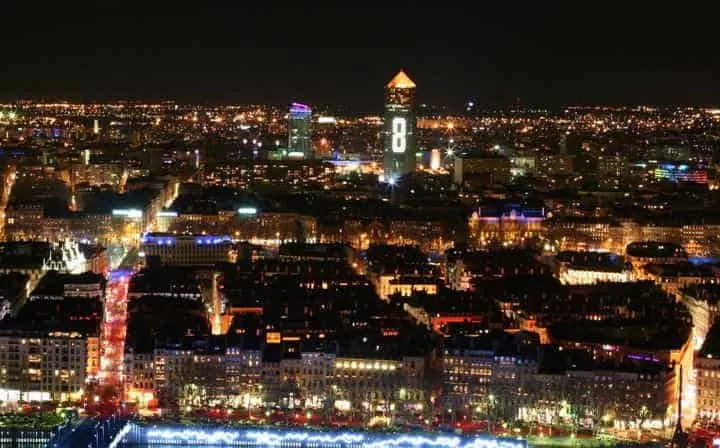On a sweltering July afternoon in the heart of Istanbul’s old city, groups of men huddle around colored plastic tables in the shade of the Aqueduct of Valens, an imposing, nearly 100-foot-tall stone wall built in the 4th century by its namesake Roman emperor. This is Duygu Ocakbaşı, a modest Turkish ocakbaşı, or grill house, and a beloved local eatery on the edge of conservative, working-class Zeyrek.
Turkish cuisine is vast, with countless regional subcultures and an array of under-appreciated soups, cheeses, meze (appetizers), fish options, sausages, egg dishes, street foods, and other specialties. But the centerpiece of Turkish dining is the ızgara, or grill, and its dozens of kebabs and grilled meats.
A half mile from Istanbul’s iconic Hagia Sophia and Sultanahmet mosques, Zeyrek is crowded this afternoon in part because of its many highly regarded ocakbaşı, some of which seat hundreds of diners. Despite its proximity to top tourist attractions, the neighborhood of Zeyrek is more of a local culinary destination, and Duygu ranks high on the list due to its stunning setting and excellent grill master.
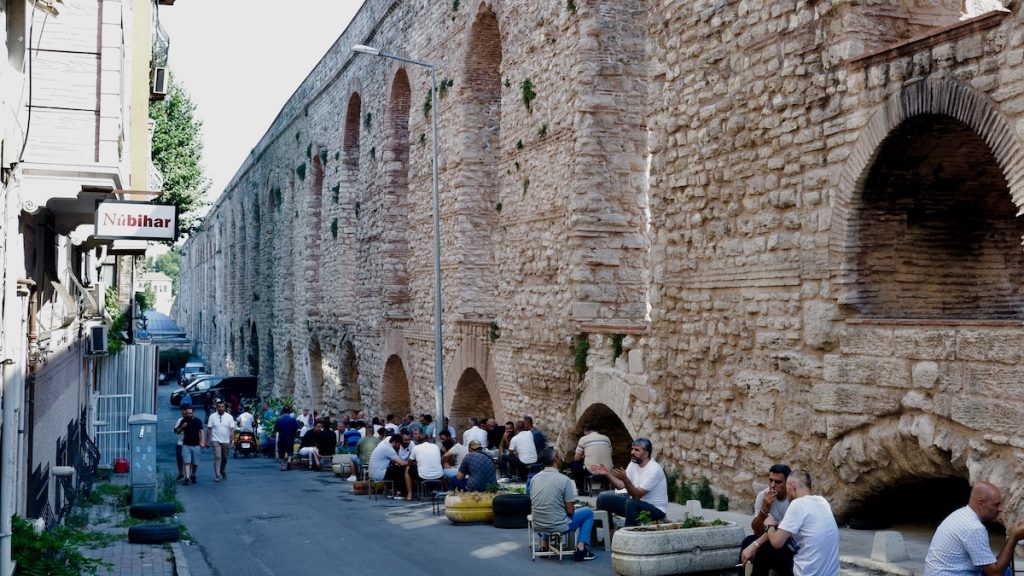
Even in late afternoon, deep into that grey area between dinner and lunch, it’s abuzz with activity. The king of Turkish kebabs is the Adana—spiced, pressed ground lamb; named after the southern city that is widely seen as the country’s kebab capital—and Duygu does a fantastic one. But I opt instead for the lamb shish kebab, which is several tender chunks of meat pressed close along the skewer.
Duygu’s shish presents the perfect marriage of salt and fat, with the exterior slightly smoky thanks to a kiss from the grill. The formidable portion of lamb is served with fresh, chewy flatbread and a simple salad of cucumber, tomatoes, and onions topped with lemon juice, olive oil, and a few sprigs of peppery arugula. The refreshing house-made ayran—a salty yogurt beverage that is Turkey’s flagship soft drink—pairs surprisingly well with grilled lamb.
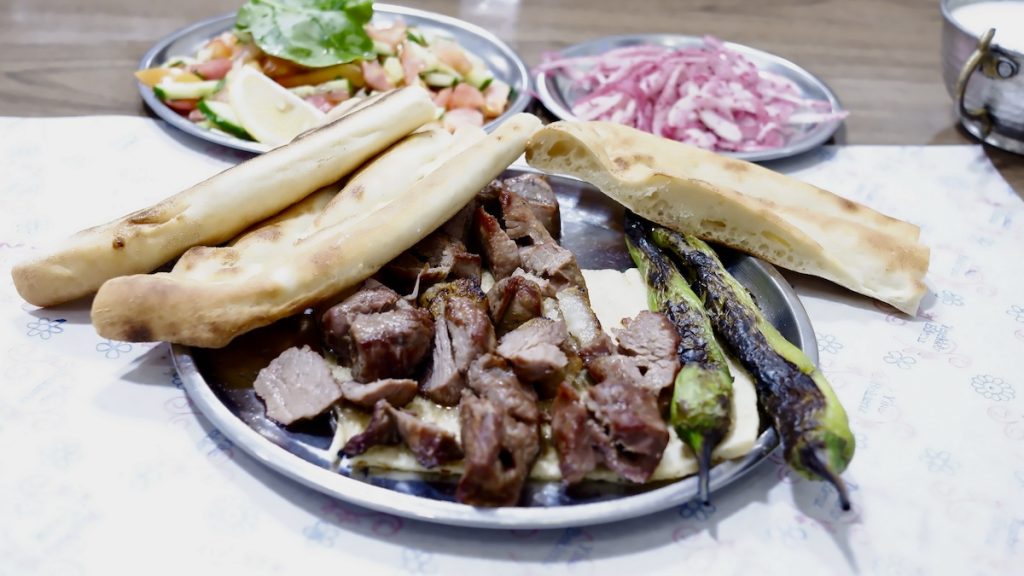
With my stomach full and the cooling ayran finished, I brace myself as I walk back out into the heat, which thankfully has begun to relent as evening sets in.
The waiter tells me everyone at Duygu is related and points out Ali, the owner and master of ceremonies. Like pretty much every other establishment in pious Zeyrek, and many restaurants and cafes across predominantly Muslim Turkey, Duygu does not serve alcohol. This aligns well with its ethos. A family-run institution that hinges on quality and customer satisfaction, Duygu could easily open another branch in a neighboring district. But Ali’s refusal to do so reflects his commitment to tradition in a city where too many restaurants capitalize on success by spreading themselves too thin.
When I ask Ali for the story of Duygu’s opening he says, “We don’t have any need for advertisements.” I explain that I’m a journalist, but Ali remains unimpressed—though he does graciously pose for a photograph. With my stomach full and the cooling ayran finished, I brace myself as I walk back out into the heat, which thankfully has begun to relent as evening sets in.
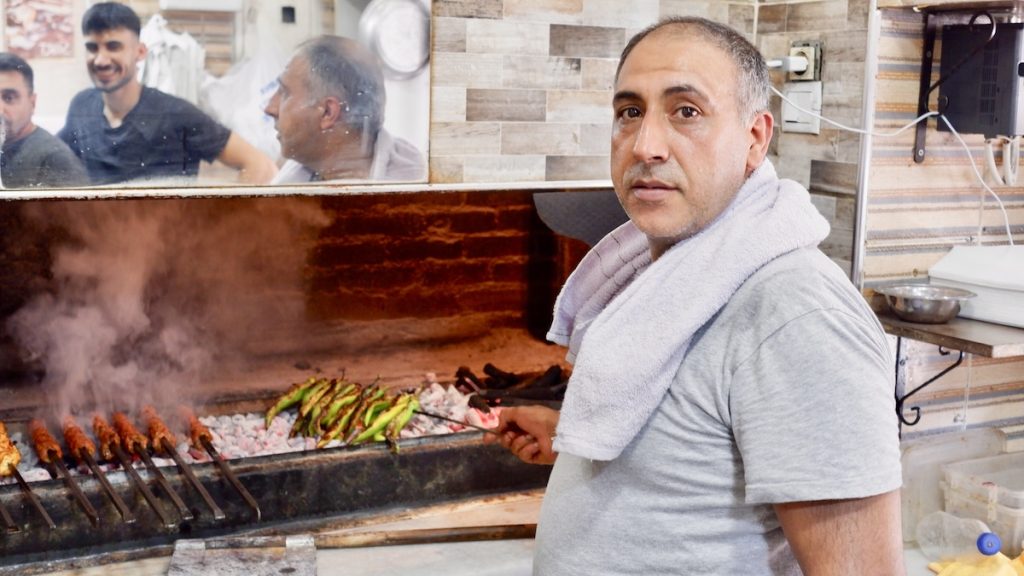
My next stop is in Ortaköy, one of Istanbul’s loveliest districts, which also makes it one of its most Instagrammable. You’ve likely seen photos of the Ortaköy mosque, with its twin slim minarets and a backdrop of the Bosporus Strait and the first bridge to link the city’s Asian and European sides.
The waterfront area of this trendy neighborhood is lined with high-end hotels, souvenir shops, and overpriced bars and restaurants. But if you move away from the crowds, cross the coast road and head uphill you’ll find a more casual, residential Ortaköy with many fine restaurants popular with locals. That list includes my destination, Harbi Adana Ocakbaşı, an elegant, well-lit dining room with a serene Bosporus view. Harbi roughly translates to “the real deal,” and that’s precisely what I hope to get.
Vedat Milor, Turkey’s most renowned food critic, once declared the Adana at Harbi Adana as better than most Adanas in Adana, which is really saying something. Before diving into the main attraction, I start with two meze: köz patlıcan, a grilled eggplant dip with chopped red peppers, garlic, and parsley served cold, and atom, fiery green pickled peppers and red pepper oil bathing in tangy yogurt. With warm, fluffy and slightly crispy flatbread, they make for a fresh, delicious start to the meal.
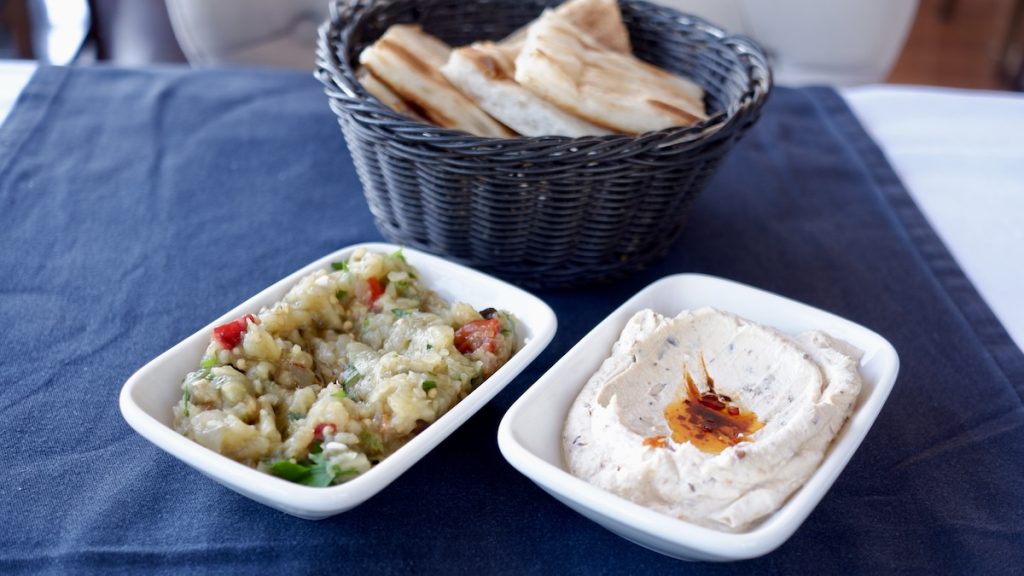
Then my Adana comes out, and I swear I can taste it before I take a bite. The kebab is supremely juicy and the umami levels are through the roof. The real deal indeed. After a few bites of just meat, I make a small wrap with the flatbread and sumac-laced, shredded red onions. Somehow it’s even better.
The formula is very basic. Good ingredients and good workmanship, that’s the secret. – Barış Gürsöz
Afterward I catch up to owner and grill master Barış Gürsöz, who, unsurprisingly, hails from Adana. The 48-year-old has been working with kebabs since he was a teenager. He ran a restaurant in his hometown for a few years before following his dreams to the big city in 2014. He initially opened a casual restaurant not unlike Duygu, then aimed higher with the opening of Harbi.
“For the past eight and a half years we have been here, and we serve alcohol,” he explained, highlighting a key dividing line in Turkish dining. “The formula is very basic. Good ingredients and good workmanship, that’s the secret.” He uses only a mix of lamb rib and thigh and adds no tail fat, a common flavor enhancer. The meat is always hand-cut with a meat cleaver, never a machine. Like many top chefs, Gürsöz is keenly aware of the value of his knowledge and experience. “I come first. Not to offend anyone, but I come first,” he says plainly. “If I like it, then everyone else will too.”
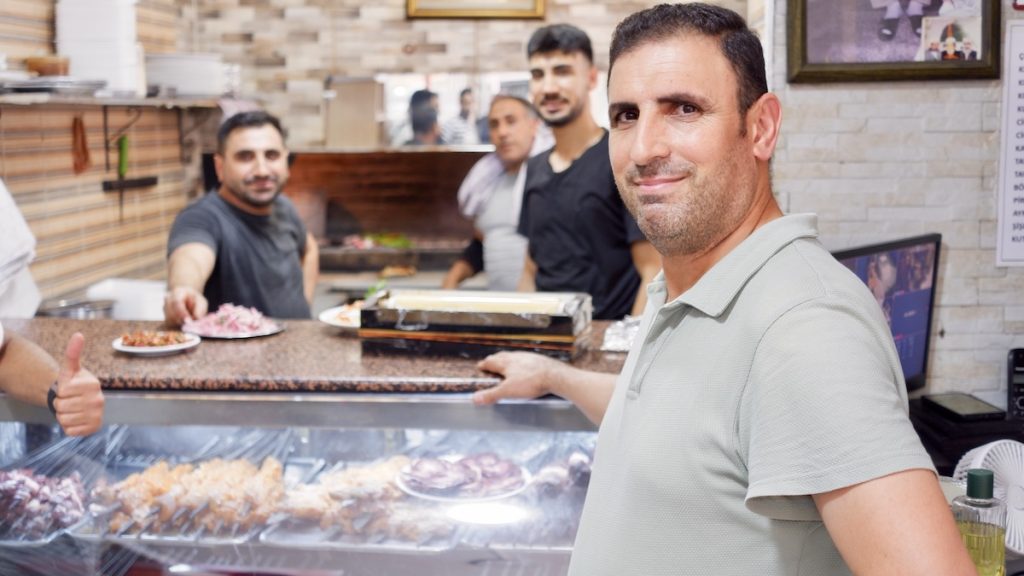
Translated literally, ocakbaşı means “head of the hearth”, which underscores the grill’s centrality to Turkish life. In the corner of the Harbi dining room sits its expansive grill, its copper roofing emblazoned with the restaurant’s name. In the heat of summer, Gürsöz and his crew use the kitchen grill, but in colder months this is where the action is, and diners who are able to stand the heat sit grillside and watch Gürsöz masterfully rotate his skewers.
As a result, Harbi tends to slow in the summer. When I visited, three tables of friends sipped rakı—Turkey’s popular anise-flavored liqueur and a favorite tipple of the country’s founder, Mustafa Kemal Ataturk—as they chatted and looked out over the Bosporus. Rakı goes well with meze and kebab, but pairs even better with good conversation.
I’ve lived in Istanbul for well over a decade and have spent many nights hashing out the personal and political with friends for hours over a good bottle of rakı. If you want high-end cocktails, loud rock bars or raucous dance clubs, Istanbul has all that in spades. But at a smart ocakbaşı, the best way to respect the meat and the grill is with a glass of rakı and friendly dialogue.
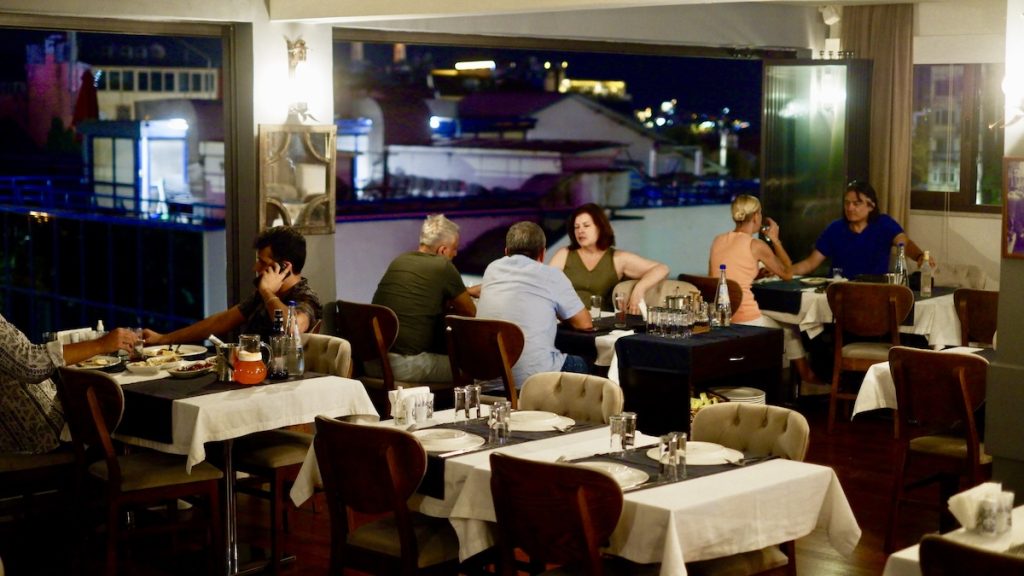
Whatever your beverage preference, no visit to this ageless former imperial capital would be complete without indulging in some grilled meats. Despite their divergent settings and experiences, both Duygu and Harbi Adana maintain the strictest standards and adhere to long-standing traditions, helping ensure every diner leaves satisfied. They’re also within walking distance of Istanbul’s two main tourist areas, Sultanahmet and Beyoglu, respectively, which means both are sure to be easily accessible at some point for visitors to one of the world’s great food cities.
——————
Freelance journalist Paul Benjamin Osterlund has lived in Istanbul for 14 years and written for a range of top publications. He writes the Substack FLANÖR, examining urban culture, food & drink and more in Istanbul and beyond.
Paul Osterlund



